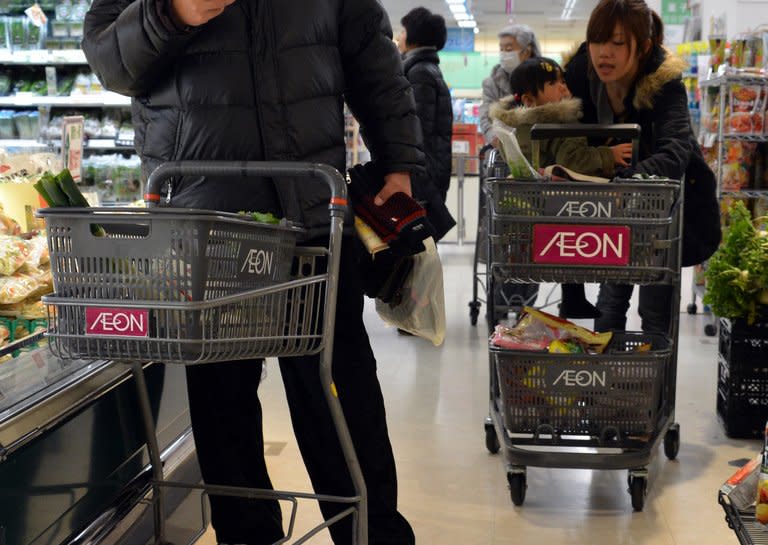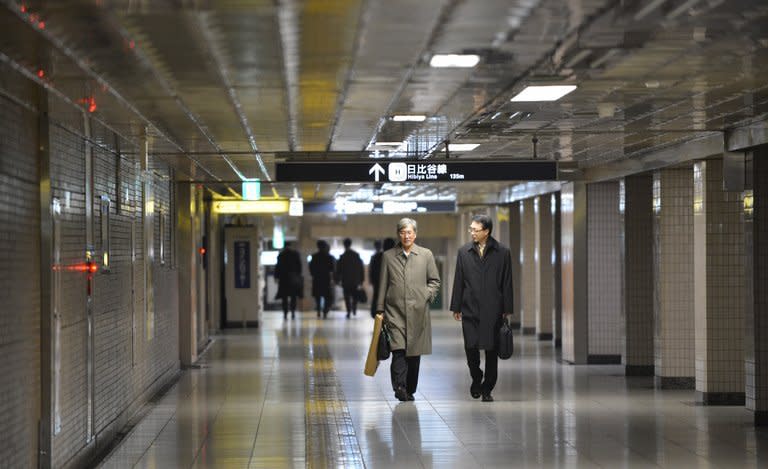Japanese shoppers upbeat as PM pushes spending
Japanese Prime Minister Shinzo Abe's plan to kickstart the economy and fuel inflation with big spending got a boost on Friday with data indicating consumers beginning to loosen their purse-strings. The internal affairs ministry said households spent 2.4 percent more than the same period last year, much stronger than an average 0.4 percent growth predicted by economists. Spending alone by households with a wage earner soared 4.1 percent, the data showed. The data will be welcome news for Abe, who took office in December promising to turn around decades of growth-sapping deflation, while pressuring the Bank of Japan into setting a two percent inflation target. However, while spending rose prices continued to fall -- dipping 0.2 percent in January -- indicating the work ahead for Abe. The prime minister's push of spending and bond-buying by the central bank, dubbed "Abenomics", has already driven the yen down more than 15 percent since November and boosted stock prices more than 20 percent in the same time. Increasing consumption is an important plank of his strategy. Abe stepped up his campaign on Thursday when he nominated Haruhiko Kuroda, an advocate of aggressive monetary easing, to become the next Bank of Japan governor. "The economy is moving in a positive direction helped by the yen's rapid fall," said Masahiko Hashimoto, economist at Daiwa Institute of Research. However, he cautioned that a bump in consumer spending was not enough to herald the kind of real inflation Japan needs. "The spending figures today look a bit too good as wages have not increased yet. Even so, the sentiment is picking up thanks to the lower yen and higher stock prices," he said. SMBC Nikko Securities economist Koya Miyamae said spending data was strong "especially due to the rise in optional consumption" on things such as entertainment. It could indicate the positive impact of Abe's pro-growth policies on consumer sentiment, he said, but added the increase in consumption was not likely to continue unless there was a rise in wages. Finance Minister Taro Aso on Friday said he was "looking to businesses to boost compensation in some form" as he met members of the Japan Business Federation, or Keidanren. While stressing that he was not demanding they accept immediate permanent pay rises, he warned that "private consumption won't grow unless labour's share of income is addressed". Daiwa's Hashimoto said there was little likelihood of an immediate rise in prices, but it may come in time. But, he cautioned, the yen's fall was also triggering price rises in imported goods, which could dampen consumption if wages stay flat. Unemployment rate edged down to 4.2 percent in January from 4.3 percent in December. -- Dow Jones Newswires contributed to this article --



